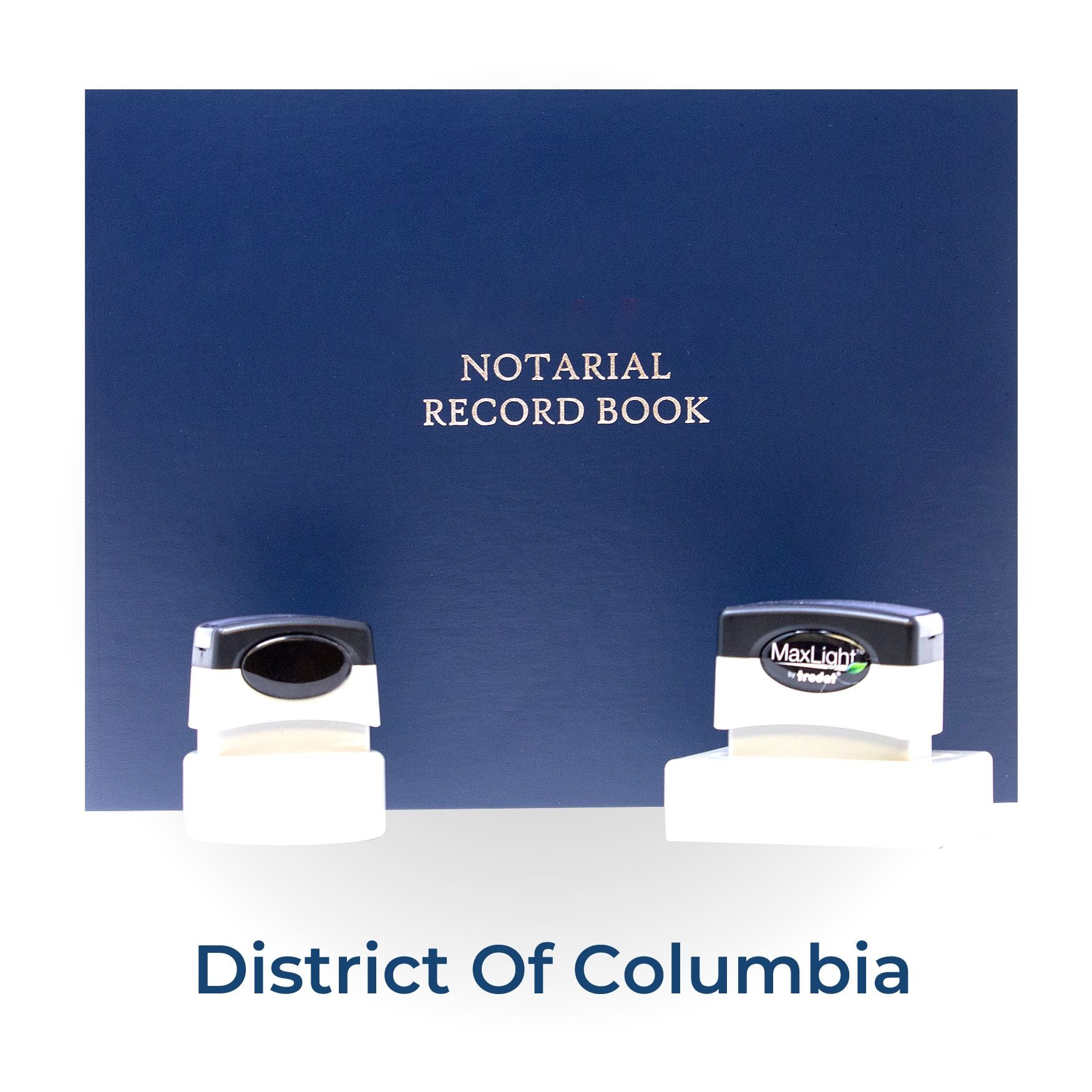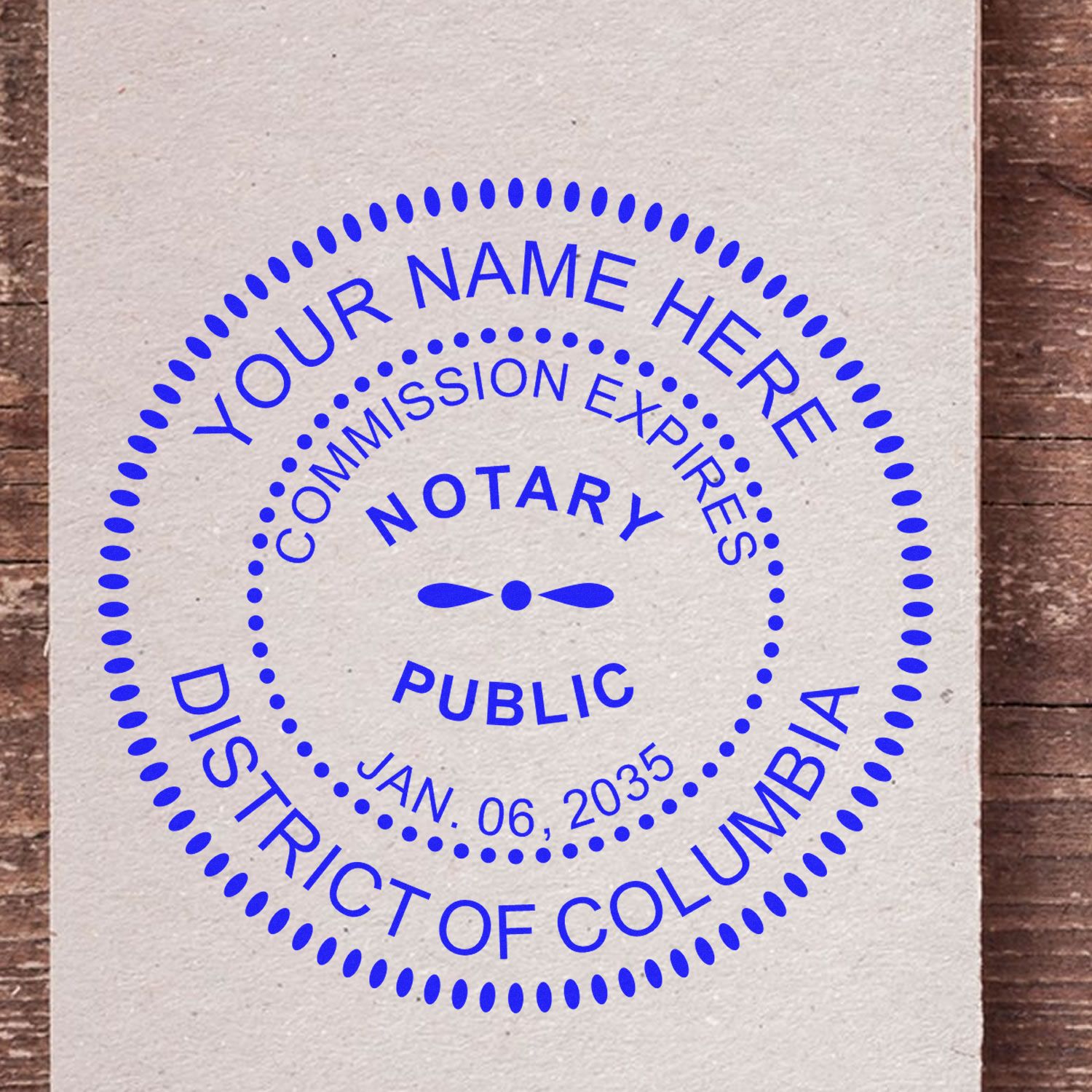Whether you’re just starting as a notary public in Washington DC or you’ve held your commission for a while, getting a notary seal in District of Columbia shouldn’t be daunting. You want a smooth experience so you can focus on the real work of serving clients. Let’s dig into each step you’ll need to take, from understanding DC-specific requirements to choosing the seal and supplies that fit your style and budget.
It doesn’t matter if you’re brand-new or renewing for the fifth time. In this article, you’ll learn how to simplify the process, stay compliant, and pick up a few tips to keep you organized. Ready to make it hassle-free?
Understand The Basic Requirements
Becoming a notary public in the District of Columbia starts with knowing the rules. The DC Office of Notary Commissions and Authentications sets the guidelines you must follow. You’ll be required to provide personal details, complete an application, and ensure you meet the state’s eligibility criteria before you can officially notarize documents.
Familiarize Yourself With DC Law
DC law dictates who qualifies to become a notary public, plus how the notary seal must be formatted. A notary must:
- Be at least 18 years old
- Be a resident of DC, or maintain a primary place of employment in DC
- Demonstrate knowledge of notarial responsibilities
- Complete any required training or exam (requirements can vary over time)
Keep in mind, the District of Columbia often updates rules and forms. It’s wise to check the current regulations before you submit your notary application. Doing a quick review of DC’s official notary handbook or website will help you confirm you’re on the right track. After all, nobody wants to redo paperwork or risk missing an important detail.
Choose The Ideal Notary Seal
Every active DC notary needs a seal that meets local specifications. But even within those standards, there’s room to personalize. Whether you prefer a classic embosser or a convenient self-inking stamp is up to you. The key is choosing a reliable supplier so your seal meets all District of Columbia guidelines.
Consider Embosser Vs. Stamp
In the District of Columbia, you can use an embosser or a notary stamp to perform valid notarizations. Wondering which one to pick? Here’s a quick breakdown:
- Embosser: Adds a raised impression to the page. Traditional look, but you’ll sometimes need darker embossing inking for photocopies.
- Self-Inking Stamp: Produces a crisp, repeatable imprint with minimal hand pressure. Faster to use, easier to read on scanned or copied documents.
- Pre-Inked Stamp: Similar to a self-inking stamp but often yields very sharp detail. Good choice if you want a cleaner edge on each impression.


No matter the style, be sure your seal clearly states your name, “Notary Public,” “District of Columbia,” and any other wording DC requires. The details must be legible so your notarizations hold up under scrutiny.
Gather The Right Supplies
Aside from your notary seal, it’s a smart idea to have a few additional necessities. Having everything in one place will help you move through appointments faster and give your clients a seamless experience. If you’re not sure where to start, district of columbia notary supplies can point you toward items that meet DC’s guidelines.
Keep Tools Organized
A well-stocked notary kit often includes:
- Notary journal: DC may not strictly require it, but tracking each transaction is strongly recommended.
- Ink refill or embossing ink pad: Make sure your seal’s impression remains sharp.
- Business cards or a small sign: Helpful if you meet clients in multiple locations.
- Carrying case: Keep your stamp, embosser, and other supplies in one place so you never misplace anything.
Staying organized is your secret weapon. You’ll be ready for unexpected client calls, and your notarial acts will remain consistent and valid.
Complete Your Commission Steps
After you gather everything, it’s time to officially become (or remain) a District of Columbia notary public. DC has a detailed application process that includes forms, possibly an orientation or exam, and a final oath. Each stage matters, so pay close attention to what the DC Office of Notary Commissions and Authentications requests.
Where To File Paperwork
In DC, your commission paperwork is usually submitted online or in person, depending on the latest official procedures. You may need:
- A completed application form.
- Proof of DC residency or proof of primary place of employment in DC.
- Payment of any fees (application, background check, etc.).
- Evidence of required training or passing an exam (if applicable).








Be sure to keep track of payment receipts and confirmation emails. Once the District of Columbia processes everything, you’re almost ready to seal documents.
Maintain And Renew With Ease
Once commissioned, you need to stay on top of your responsibilities. DC notaries typically renew their commissions every few years, with renewal windows determined by the District’s rules. Missing renewal deadlines can interrupt your ability to perform notarizations, so it’s helpful to set a reminder in your calendar.
Track Expiration Dates
New notaries sometimes forget that their commission and seal might have expiration dates. This can lead to last-minute scrambling and potential compliance issues. To avoid that:
- Record your commission expiration date in a calendar or planner.
- Schedule a reminder a few months ahead so you have time to renew.
- Double-check your seal’s physical condition. If it’s worn out, order a replacement before it fails to make a clear impression.
In addition, keep any ethics or technique training up to date. Rules and best practices evolve, and you’ll stand out by always offering top-notch professionalism.
Experience Quick Service And Value
When you need a notary seal, you shouldn’t have to wait forever or break the bank. That’s where a trusted provider can make a big difference. Engineer Seal Stamps, for example, has been helping notaries across various jurisdictions for over 60 years. The District of Columbia is no exception.
Benefits Of Trusted Providers
Here’s why working with a seasoned supplier can save you time and frustration:
- Quick service. Nobody wants to wait around for essential notary tools. A fast turnaround keeps your business running smoothly.
- Expertise on DC regulations. Providers with a long track record know DC requirements inside out. Less guesswork means fewer mistakes.
- Quality guarantee. After decades in the market, a reputable brand understands durable materials and accurate imprint technology.
- Free digital stamp. This perk can be a lifesaver. You get an electronic version of your seal for digital notarizations or e-documents.
A word to the wise: confirm your name is spelled correctly on the seal. Sounds basic, but minor typos can derail your entire operation.
Frequently Asked Questions
Below are four quick FAQs we often hear from District of Columbia notaries. If you still have questions, the DC Office of Notary Commissions and Authentications is a reliable resource, and reputable suppliers can also offer personalized guidance.
Does My Notary Seal Need Specific Wording?
Yes. DC requires your seal (embosser or stamp) to contain your name, “Notary Public,” and “District of Columbia.” Always check if there are additional mandates, such as expiration date or commission number.How Do I Ensure My Seal Is Valid Over Time?
Keep it in good condition, re-ink if necessary, and replace it if it becomes broken or worn. Always store it in a safe place. If you spot a faded impression, it’s time for a refill or a new stamp.What If I Move Or Change My Name?
You’ll need to notify the DC Office of Notary Commissions and Authentications. In some cases, you’ll file paperwork to reflect the change. Then you’ll likely need an updated notary seal that shows your new legal name or address.Where Can I Buy A Reliable DC Notary Seal?
You can order directly from trusted suppliers like Engineer Seal Stamps. Many offer customization for District of Columbia notary seals, plus extras like a free digital stamp. Make sure you’re ordering from a provider that understands DC’s exact standards so you stay compliant.
It may sound like quite a bit to keep track of, but once you get your commission and seal sorted out, your day-to-day notarial tasks become much simpler. Think of it as an investment in a professional tool that sets you apart, keeps you compliant, and helps you deliver top-quality service to your clients.
In the end, getting your notary seal in District of Columbia can be quick and straightforward if you follow these steps and choose a reliable supplier. You’ll soon be sealing documents confidently, knowing you’re meeting every requirement down to the last detail. If you’re ready to begin, don’t hesitate to start your application or upgrade your supplies. Good luck with your notary journey!





































